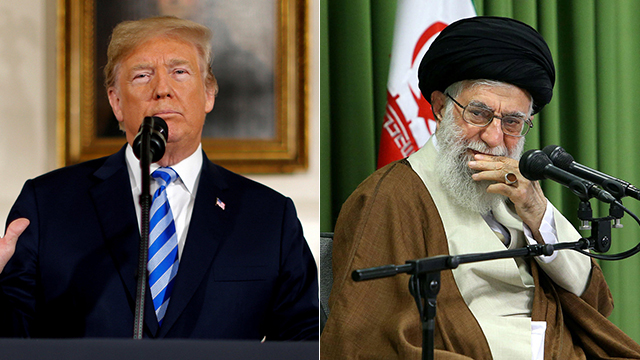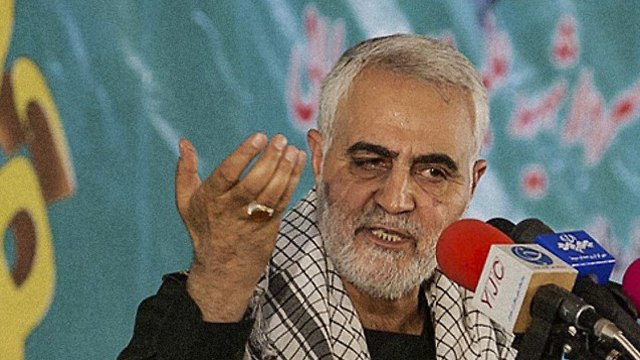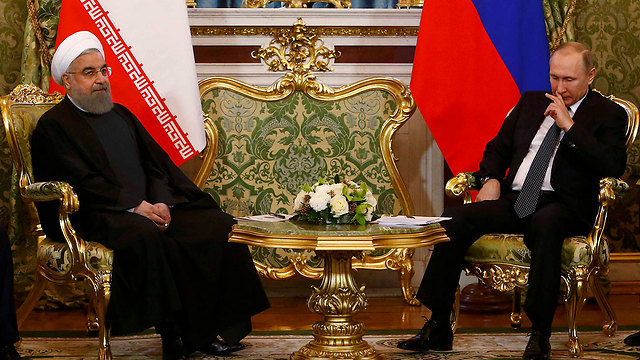Op-ed: As the noose tightens around Iran’s economy and unrest spreads in its cities, Iranian hardliners may have the most to gain; Humiliating summit with Trump unlikely, unless Putin steps in.
Tuesday, the first wave of US sanctions are set to strike Iran, again. Iran’s economy has suffered greatly since President Trump’s declared the United States’ withdrawal from the nuclear agreement and his intention to reinstate the sanctions.
The international markets reacted unequivocally to any contact with Iranian officials, the local currency collapsed and throughout the country demonstrations erupted with slogans that undermine the legitimacy of the Islamic Republic.

President Trump gave American and international companies 90 days to prepare for the sanctions implementation. Iran’s ability to gain access to world financial markets, to convert dollars, to maintain state bank accounts, to issue bonds and sell them on the US market, to convert gold, and so on, will be limited again.
All the above measures were initiated by the Obama administration, and the Trump White House is reinstating them.
In principle, the goal is to achieve a “better agreement”; in practice, the administration signaled that it wanted a “regime change” in Iran. This is an exceptionally ambitious goal and carries inherent risks.
The protests in Iran in recent months can serve as a positive sign of the regime’s destabilization — the demonstrators shout “Not Gaza, not Lebanon — Iran!” – But this is a preliminary analysis, and perhaps too simplistic. Many elements inside Iran are happy about these demonstrations, which illustrate the failure of a regime with reformist characteristics.
As far as Iranians are concerned, the regime had reached a compromise on a matter of national consensus, the nuclear program, but it turned out that the conservative right was correct: the West and the US cannot be trusted.
Now Iran is trapped in an impossible situation, say supporters of the spiritual leader and others. On the one hand, it is a signatory to an agreement that does not allow it to become a nuclear power. On the other hand, no one can conduct business with it as promised because the Americans are blocking its access to the world economy.

This state of affairs is a huge victory for the internal Iranian rejectionist front, hinting at the entry into politics of Qassem Soleimani, commander of the al-Quds Force — the Revolutionary Guards’ special forces — and perhaps the most popular figure in the country (and a bitter enemy of Israel, of course).
In other words, undermining the regime may lead to reforms and perhaps to substantive change, but may also to give impetus to very conservative forces that will exploit the situation to “restore order” and destroy the more moderate elements of the Islamic Republic.
Iran’s problems are of course much broader than the issue of sanctions, or even the collapse of the currency exchange rate. The Islamic Republic is entrenched in inefficient government policies, subsidies, closed economic sectors, such as those belonging to the Revolutionary Guards, widespread corruption, etc. For decades, the Iranian economy has been unable to restore the rates of growth and oil production from the period of the Shah, and when the theocracy finally succeeded in doing so, oil prices have fallen and the economy has collapsed.

In November, the second wave of sanctions are expected to strike again, this time at the lifeline of Iran — oil. Qassem Soleimani, furious and fuming, threatened to destroy “everything owned by Trump” a few weeks ago. In the face of these empty threats, Trump celebrates his victory and offers — a recurring theme in his contacts with dictators — a personal summit with the Iranian leader.
However, unlike North Korea or Russia, decision-making in Iran is broader, and such a meeting would not be interpreted by the Iranians as a victory but as humiliation: proof that it is possible to sign an agreement with them, break it, and force them to come back to the negotiating table.
Here is where Vladimir Putin enters the picture. The Russian leader could propose a compromise for a new deal that would allow the Iranians to maintain their dignity. His amicable relations with Trump and the Iranian government certainly allow this. Many in Tehran and Washington hope that he will do just that.
As reported by Ynetnews
